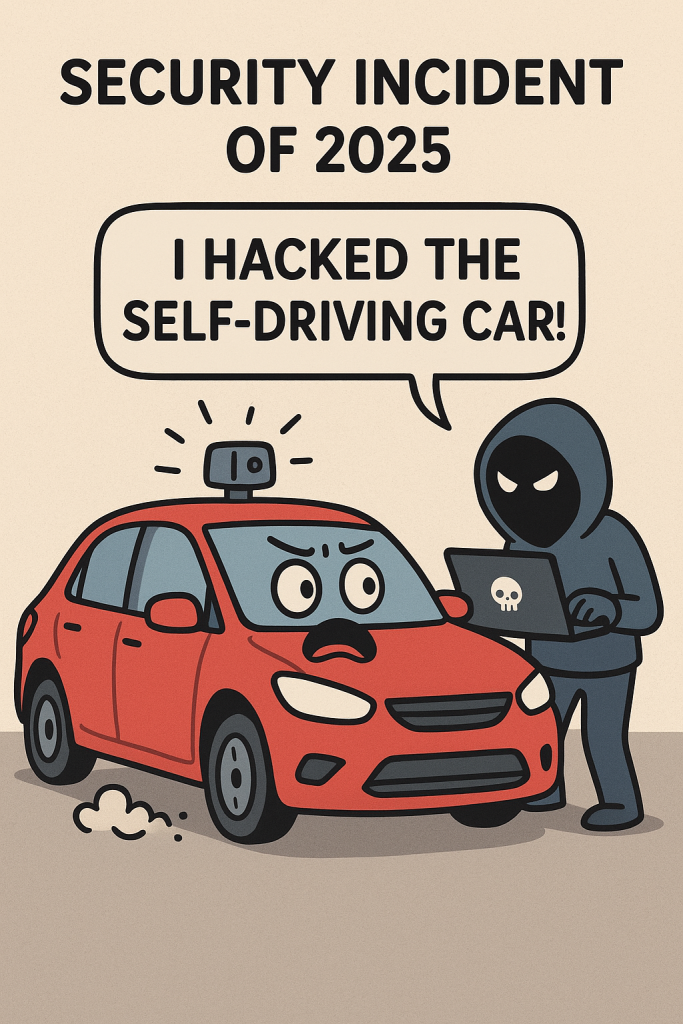
Connected vehicles have rapidly proliferated across Europe, brimming with sophisticated software, myriad sensors, and continuous connectivity. While these advancements deliver conveniences like remote control features and intelligent navigation, they simultaneously expand the vehicle’s digital attack surface, what enhances “smartness” inherently introduces fresh cybersecurity vulnerabilities.
A recent study — both technical and survey-based — questioned roughly 300 mostly European participants about their awareness and attitudes regarding smart-car security and privacy. The findings indicate that most people understand their vehicles share data with both manufacturers and third parties, particularly those driving newer models. Western Europeans showed greater awareness of these data flows than respondents from Eastern Europe.
Despite rising awareness, many drivers lack clarity about what precisely “smart car” entails. Consumers tend to emphasize visible functionalities — such as self-driving aids or entertainment systems — while overlooking the less visible but critical issue of how data is managed, stored, or potentially exploited.
The existing regulatory environment is striving to catch up. Frameworks like UN R155 and R156, already in effect, mandate systematic cybersecurity management and secure software update mechanisms for connected cars. Similarly, from July 2024, EU rules require that new vehicles cannot be registered unless they guarantee robust cybersecurity—pushing automakers toward ‘security by design.
Moreover, Europe is developing additional protective technologies. For example, the EU-funded SELFY project is building a toolkit to safeguard connected traffic systems, aiming to issue cybersecurity certificates and bolster defenses against cyber threats. The European Commission is also establishing protocols around testing, data recording, safety monitoring, and incident reporting for advanced automated and driverless vehicle systems.
Nevertheless, gaps remain—particularly between policy progress and public trust. Even as regulations evolve and technical tools mature, many vehicle users remain uncertain about the extent of data collection, storage, and sharing. Without stronger transparency, consumer trust is likely to lag behind technological and regulatory advancements.
Car Security and Privacy
Connected cars represent a defining shift in the mobility landscape—offering unprecedented convenience but accompanied by elevated risks. The central paradox is clear: as vehicles become more connected and intelligent, they become more exposed. This isn’t just a matter of potential remote hacking; it’s about data flow—where, how, and by whom vehicle data is used.
Europe is taking commendable steps by enforcing cybersecurity mandates (like R155/R156) and promoting proactive, security-by-design approaches. Projects like SELFY and structured regulatory initiatives around automated vehicles signal forward motion.
However, the real challenge lies in closing the trust gap. Many drivers still don’t have a clear understanding of data practices. Communicating complex cybersecurity architecture in accessible terms is essential. Automakers and regulators must both educate and reassure—perhaps through public dashboards, standardized labels on data practices, or periodic transparency reports that explain what data is collected, why, who has access, and how it’s protected.
For drivers, vigilance remains crucial. Prioritize vehicles that support secure over-the-air updates, enforce two-factor authentication for vehicle apps, and carefully review privacy settings. As consumers, push for clarity and accountability—our vehicles shouldn’t just be smart; they should also be secure and respectful of our privacy.
“Connected cars are racing ahead, but security is stuck in neutral”

Connected cars and cybercrime: A primer
How Virtualization Helps Secure Connected Cars
Modern cars: A growing bundle of security vulnerabilities
Car Hacking and its Countermeasures
Bug in Toyota, Honda, and Nissan Car App Let Hackers Unlock & Start The Car Remotely
Multiple Vulnerabilities in the Mazda In-Vehicle Infotainment (IVI) System
Integrating cybersecurity into vehicle design and manufacturing
Your car is probably harvesting your data. Here’s how you can wipe it
The Rise of Automotive Hacking: How to Secure Your Vehicles Against Hacking
Car companies massively exposed to web vulnerabilities
Million of vehicles can be attacked via MiCODUS MV720 GPS Trackers
Securing vehicles from potential cybersecurity threats

InfoSec services | InfoSec books | Follow our blog | DISC llc is listed on The vCISO Directory | ISO 27k Chat bot | Comprehensive vCISO Services | ISMS Services | Security Risk Assessment Services | Mergers and Acquisition Security




